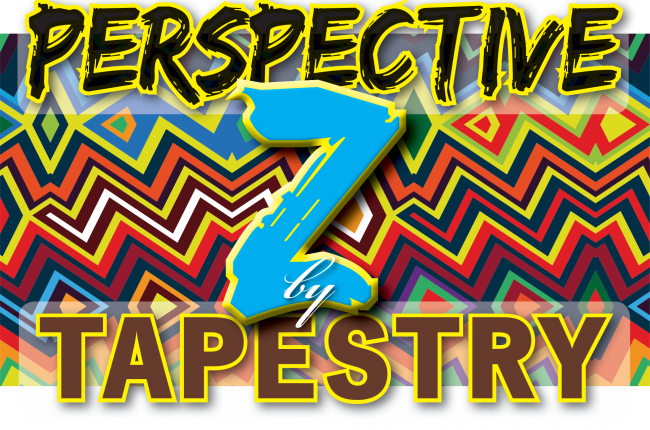As we have seen through the increasing visibility of Latines in American pop culture, latinidad comes in all shapes, sizes, and colors. Nevertheless, American pop culture all too often squishes this diversity from across Latin American countries into perfectly racially ambiguous characters: not entirely white, not entirely Black, not entirely Indigenous. Due to this tokenizing squishing together ostensibly in the name of racial diversity, many Latines are caught in a vicious cycle of ni de aqui, ni de alla (not from here, not from there). But what happens when Latines in real life disrupt the “perfect balance” portrayed in the media? Through the words of Afro-Latina poet, Elizabeth Acevedo, many, including myself, have finally felt a sense of belonging and identity they have never felt before. Acevedo highlights the awkward in-between thereby breaking the mold of latinidad that is palatable–and still preferable–to white American audiences.
I have always lived in the in-between. Being born to Dominican parents in the United States has made me too Dominican for Americans, too American for Dominicans. I have never felt that I could fully say I was one or the other. My English has always had a little bit of Spanish, and there was always English on the tip of my tongue while speaking Spanish. The two will always bleed into each other. Racially, I have never belonged anywhere either. I am neither Black or white; there is no box to check off for being brown. Even brown is a complicated word to describe myself.
The in-between promised to become less awkward when I saw Zoe Saldaña for the first time in the movie Colombiana. Here was this woman on my screen who could fit perfectly into all my family pictures, and no one would bat an eyelid. Except she couldn’t. She was playing a Colombian woman, and not the Dominican woman she is. She never has played that woman. On the silver screen, she has always been someone else. An alien in Guardians of the Galaxy, a humanoid in the Avatar movie series, but never a brown woman. And of course, the one time she wasn’t green or blue, she donned blackface to play Nina Simone. Zoe Saldaña’s light-brown skin mirrors mine but has never told my story.
One day I was strolling through Barnes and Noble, promising myself I would stick to my budget, when a colorful cover caught my eye. I picked it up, little knowing that it would change the way I see myself. The book was The Poet X by Elizabeth Acevedo. I opened it, and all of the things I wanted to hide, like my “island Spanish,” were made visible. Not only were they legible, they were lovable. I found myself identifying with the protagonist Xiomara instantly, from the very first word of the series of poems. In “Names”, she confronts the fact that not even her name is Dominican enough. When Xiomara says, “Shit, Xiomara, isn’t even Dominican,” I thought to myself, “Shit, Aileen, isn’t Dominican at all.” Just like Xiomara, I have Googled my name many times. My name is an Irish name that means bright, shining light. I can only hope that I live up to its meaning, as Xiomara does. Xiomara talks about how her name became a labor for others to pronounce, and while mine is a slight adjustment from the traditional pronunciation of Aileen, it is still a challenge for most people. I always knew that if there was a slight pause or look of confusion during roll call, it was most likely my name that would be called next. Just when I think I have heard every single possible pronunciation of my name, I am surprised with a completely new one.
But Acevedo goes so much further than the name. Or what’s on the surface. Her new book Family Lore, her first adult novel, perfectly encapsulates the depth and nuance of the role of Dominican women in Dominican-American families. The story centers on the memories of the Marte sisters’ upbringing in Santo Domingo and the contrast between their past and their lives in New York City. The love the Marte sisters have for each other, and the love Acevedo has for them, is crystal clear throughout the story. She gifts the readers a beautifully vibrant mosaic of generations of Dominican women whose love, despite tumultuous times and generational differences, is still present throughout.
“Family Lore reads like the feeling of getting older and no longer having moms and aunts lower their voices when you enter the room–like finally being privy to what makes a family flawed and perfect,” Isabella Gomez Sarmiento writes in a review of Family Lore for NPR. This perfectly encapsulates my journey to becoming a young Dominican-American woman. As I get older, the notion of “calladita te vez mas bonita” (“you look prettier when you are quiet”), our version of “the adults are speaking,” has faded with every conversation in which Mami and mis tías include my sister and me. Little by little, I am able to piece together my own family lore. While The Poet X represents my feelings of placelessness as a teenage girl, Family Lore mirrors my journey of taking up space and creating a place for myself as a woman, instead of waiting for one to be made.
I could cite almost every single piece of writing Acevedo has ever written, and I could go on and on about every detail with which I identify and connect. In her writing, I hear the voice I’ve tried to suppress and the name I’ve never been sure about. She does not hide. She does not shy away from the awkwardness of the in-between. She puts it on display for all to see. Acevedo eloquently and lovingly illustrates the beauty of the Dominican-American experience, something that I am still learning to do. Her words give me the courage to write my own.
